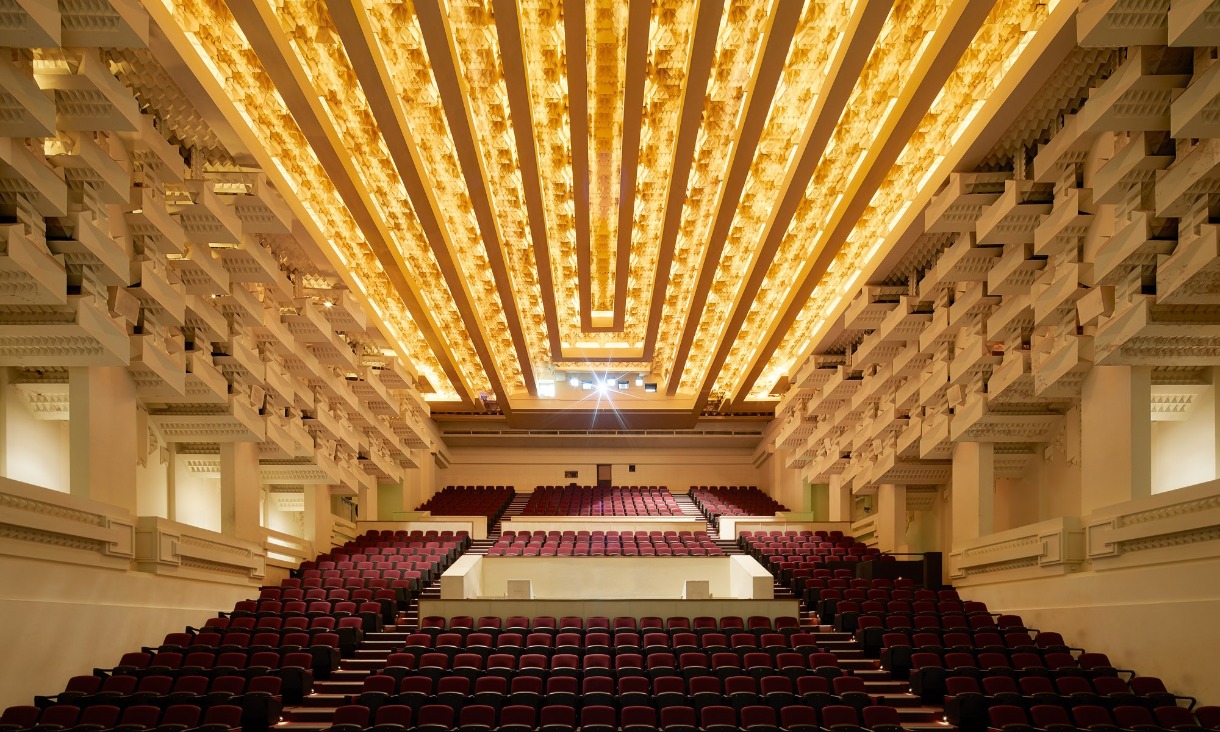
RMIT partners with ACMI to reactivate the iconic Capitol Theatre
The Capitol Theatre will soon take its place again at the centre of Melbourne’s vibrant cultural scene thanks to an exciting partnership between ACMI and RMIT that will see it reopen in 2019.

Once the city’s hub for a thriving entertainment and arts scene, for decades the Capitol Theatre has remained a treasured Melbourne landmark, under the recent stewardship of RMIT.
With a vision to reactivate the Capitol Theatre and transform it for future generations, RMIT’s new partnership with ACMI is expected to make that vision a reality.
It is estimated that the renewed Capitol Theatre will host more than 500 events and see more than 100,000 visitors through its doors each year
ACMI will partner with RMIT for one year while the museum’s doors are closed for a transformational renewal.
The Capitol Theatre will be run by ACMI staff to host the vibrant range of film festivals housed at ACMI over the year including Melbourne Queer Film Festival, Melbourne International Film Festival (MIFF), Human Rights Arts and Film Festival and The Japanese Film Festival Australia and many more.
RMIT Pro Vice-Chancellor and Vice-President Paul Gough said that through the Capitol Theatre, the University was seeking to celebrate Melbourne’s past, while looking to the future of creative industries.
“By transforming this beloved landmark and partnering with ACMI, we’re creating a space not just for RMIT students and staff, but for the wider Melbourne community,” he said.
“We’re creating a cultural and educational destination - a thriving centre where the creative community can interact, connect and collaborate."
ACMI Director and CEO Katrina Sedgwick said the partnership would ensure visitors could continue to enjoy ACMI’s vast events and festival line-up while the museum’s doors were closed from mid-2019 to mid-2020.
“ACMI is undergoing a major revitalisation of its Federation Square site, transforming the museum into one of the world’s leading public institutions for screen culture and innovation to serve an audience of industry, education and the public.
“We’re delighted to partner with RMIT’s Capitol Theatre during this period, so festival-goers can continue to enjoy attending popular events, such as Melbourne Queer Film Festival, Melbourne International Film Festival (MIFF), Human Rights Arts and Film Festival and The Japanese Film Festival Australia.”
Beyond ACMI planned events, the Capitol Theatre will also be used as a research and innovation hub for education and industry.
The new partnership is set to create further opportunities for students and staff at RMIT, from co-designed research and mentoring programs, through to internships, paid employment and volunteering positions.
“We’re embedding creative industries directly into RMIT and by doing that, we are able to provide unique student and staff experiences that they won’t find anywhere else,” Gough said.
In an exciting first, the Capitol Theatre will also be directly connected to the media precinct within RMIT’s award-winning New Academic Street, enabling the delivery of innovative and connected learning experiences for RMIT students across digital media, virtual reality (VR), augmented reality (AR), film and animation.
“Put simply, we’re creating a ‘new media’ hub in an ‘old media’ setting,” Gough said.
“Our students will be able to connect and collaborate with real industry partners and the professional creative community without even having to leave campus. That is quite extraordinary, and unparalleled in the sector.”
The Capitol Theatre is already backed by a number of highly regarded names in the film and television industry including Producer of Chariots of Fire, Lord David Puttnam; Producer of The Dressmaker, Sue Maslin; and animation writer, director and producer, Adam Elliot.
With a proud and award-winning history of architectural innovation and restoration of heritage buildings, RMIT expects the revitalised Capitol Theatre to sit at the centre of Melbourne’s cultural spine which runs from the St Kilda Road Arts Precinct, to the Ian Potter Museum in Carlton.
The refurbishment effort is occurring over multiple phases and includes foyer restoration, cinema projection upgrades, lighting and sound upgrades and seat and carpet replacement.
Originally designed by renowned architects Walter Burley Griffin and Marion Mahony Griffin, the Chicago Gothic-style theatre is considered their greatest interior design work.
Described by Robin Boyd, renowned Australian architect and RMIT alumnus as “the best cinema that was ever built or is ever likely to be built”, the Capitol Theatre is a unique and extraordinary example of architecture and is one of the few cinemas remaining in Australia to retain both 35mm and 70mm film projection.
- ends
Further information
· 1924: the Capitol Theatre opened to become one of Australia’s most architecturally acclaimed cinemas.
· 1999: RMIT acquired the iconic building to preserve its heritage and inject new life as a theatre and festival venue
· 2014: the restoration works were so substantial that The Capitol Theatre closed to the public
· 2017: the RMIT Capitol Theatre Appeal launched to reactivate this iconic landmark
Media enquiries:
RMIT media: 0439 704 077, news@rmit.edu.au
ACMI: Imogen Craddock Kandel, +61 434 603 655, Imogen.CraddockKandel@acmi.net.au
- Arts and culture
- Industry


Acknowledgement of Country
RMIT University acknowledges the people of the Woi wurrung and Boon wurrung language groups of the eastern Kulin Nation on whose unceded lands we conduct the business of the University. RMIT University respectfully acknowledges their Ancestors and Elders, past and present. RMIT also acknowledges the Traditional Custodians and their Ancestors of the lands and waters across Australia where we conduct our business - Artwork 'Sentient' by Hollie Johnson, Gunaikurnai and Monero Ngarigo.
More information